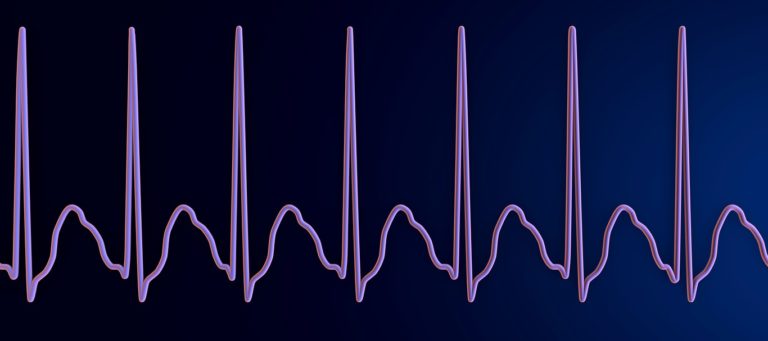If you are about to compete in a combat sport like boxing or MMA, congratulations! The folks at Page 2 at ESPN did an in-depth analysis with a group of experts on which sport requires the most endurance, speed, power, strength, nerve, analytical aptitude, and hand-eye coordination. Once all of the votes were cast, boxing was considered the most physically demanding out of every sport considered. Fishing came in last (no surprise there).
So, according to ESPN, you are part of an elite group of athletes that has to be in better shape and possess more skills than athletes in any other sport. To get to this point, you had to go through intense training hours and hone your body and skill until you are the ideal fighting machine. But to get there, you have to make sure that you are taking care of your body so that it’s able to handle the paces you are going to put it through in the ring. This is where proper medical care before participating in a combat sport is essential to get the most out of your time in the ring.
Testing Requirements
Each state has testing requirements before and between each fight. These requirements are to promote the health and safety of each fighter. Fighters want to limit their exposure to danger in the ring, outside of their opponent trying to bash their head in. Some of the medical tests and medical exams your state commission may require you to take before you are cleared to fight are:
· HIV/HepB/HepC testing
· Optometrist Exams
· Neurological Exams
· MRI Scan
· CT Scan
· Physical Exam
· Female Exam
· EKG
Like the HIV/HepB/HepC testing, some of these exams are required for every competition, while others are only under certain circumstances. Whatever testing and exams you are required to take, you need a medical professional by your side to order the tests and interpret the result and help guide you if any issues need to be addressed.
Physical Exams
A full physical exam is crucial before a fight. The first and most obvious reason for these exams is to determine if you are fit to fight. But the second reason why these exams are required is to protect your health to the fullest extent possible when you are in the ring. Many conditions can dramatically worsen in a combat sport and catching those conditions before a fight requires a skilled physician who is familiar with the sport and knows what to look for. Here are a few of the items that should be checked during a combat sport physical exam.
Eyes – Signs of significant astigmatism, optic nerve degeneration, pre-retinal detachment, double vision, and your ability to see without glasses or contact lenses are observed.
Ears – Indications of bilateral deafness, recurrent ear discharge, persistent tinnitus, and complete deafness are examined.
Face – The physician may check you for facial deformities that would impair your breathing or cause you not to be able to hold a mouthpiece in your mouth.
Heart – The physician will check for signs of rheumatic or ischemic heart disease, cardiac arrhythmias, and congenital heart disease. Any signs of an irregular heart may require EKG testing.
Lungs – Lungs are examined by listening to the fighter’s breathing with a stethoscope. Your medical history is checked for any signs of recurrent bronchitis, tuberculosis, emphysema, and recurrent pulmonary fulminating infections.
Brain and Spine – Your medical history is checked for signs of epilepsy, recurrent dizzy spells, cerebrovascular disease or insufficiencies, focal and persistent leg or arm tremors, previous history of syphilis, and degenerative spinal cord disorders. The physician will also look for signs of impaired motor skills and irregularities in your pupil reaction.
Bones and Joints – Signs of degenerative disc disease of the spinal column, and signs of arthritis in your hands, forearms, shoulders, and legs, or muscular dystrophy and osteoporosis.
Torso – You will be checked for any hernias, be they inguinal, abdominal, and hiatal. A physician will also check your abdomen for signs of an enlarged spleen or liver.
Endocrine – A physician will examine your medical history for any hypoglycemic attacks, adrenal and pituitary gland dysfunctions, and thyroid dysfunction.
Skin – Your skin will be checked for lesions, rashes, or other anomalies that may cause concern.
Blood – Medical records checked for any history of anemia, leukemia, hemophilia, or other blood clotting disorders. Also examined is your blood pressure to ensure that it is no higher than 150 over 90, as anything higher requires further investigation.
Guidance on Nutrition and Hydration
We’ve already established that combat sports are the most physically demanding of any sporting event. But what is equally if not more demanding is the exercise regimen that is required to compete. No matter what training technique you follow, your body will need the proper amount of nutrition and hydration to reach the peak of its physical capabilities. A physician who is knowledgeable about the physical requirements of your sport can outline a proper nutrition and hydration plan, monitor your progress, and look for areas of improvement or danger signs that your body is not getting what it needs.
TheFightDoctors.com Have You Covered!
We at the Fight Doctors have you covered for all of your pre-fight medical needs. As licensed physicians, we can perform any number of examinations that your state commission requires. We can also guide you in nutrition, holistic products, and hydration techniques to keep you healthy. If you are an MMA athlete, you may be looking at weight cutting as a way to get into a lower-weight class. While this practice is not medically advisable, as physicians familiar with the fight industry, we can guide you through the process to achieve the best outcome possible. You can always count on the Fight Doctors for all of your pre-fight and post-fight medical needs!







